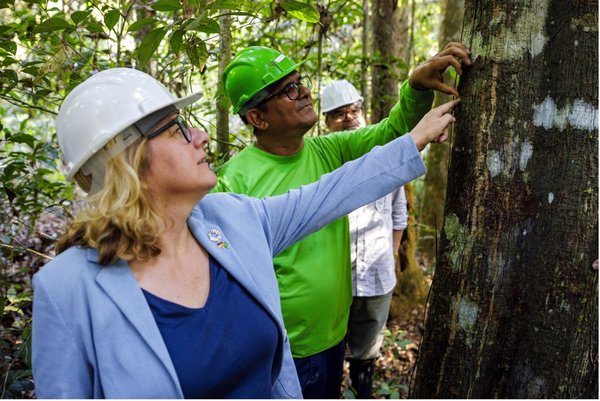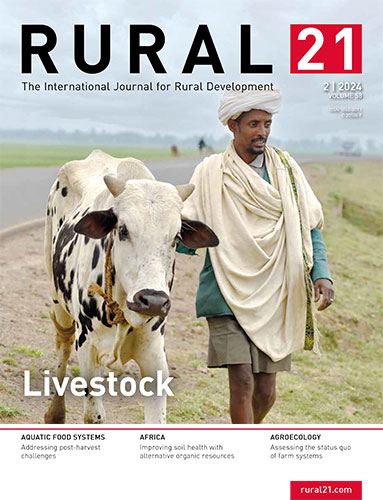- Share this article
- Subscribe to our newsletter
Opening the Brazilian Rainforest Conservancy’s Regional Centre
Germany’s Federal Minister of Economic Cooperation and Development, Svenja Schulze, and Brazil’s Environment Minister Marina Silva jointly opened the Regional Centre of the Brazilian Conservancy Institute Chico Mendes (ICMBio) in late July. ICMBio is the world’s largest conservancy and is responsible for protected areas covering a total area four times the size of Germany.
The Regional Centre is responsible for all protected areas in Amazonia. Its tasks include combating environmental crime, controlling deforestation, dealing with forest fires and managing the use of forests. Environment Minister Silva has completely reorganised the authority. Germany’s Ministry for Economic Cooperation and Development (BMZ) has financially participated in the establishment of the Regional Centre and the provision of further technical equipment.
In addition to protecting still intact forest, restoring already destroyed forest is of considerable importance. Here, efforts address deforested and now fallow areas with a magnitude of 55 million hectares, which is the size of France. Part of these areas could be reforested with indigenous species. Germany is providing 15 million euros for “Floresta Viva”, a new reforestation fund set up by the Brazilian Government which is open to both international donors and private financiers. The people living in the protected areas are benefiting from these projects. For example, they receive support for starting tree nurseries in which indigenous varieties are grown.
“The Brazilian Government is taking determined action and is simultaneously combating climate change and extreme inequality, hunger and poverty. This is exactly the right approach. Action to combat global warming meets with success if social issues are also addressed,” said Svenja Schulze on the occasion of opening the Centre in Santarém. “For Amazonia, this means that forest conservation will be successful if people can live better on the restored forest than they could before deforestation,” Schulze added. This would be particularly successful if the right incentives were provided for a sustainable use of the forest, she noted. According to the minister, reforestation was also a good approach, for it created jobs and income for the local population, who would otherwise often be disadvantaged.
Norway and Germany are important donors to the Amazonia Fund
Norway and Germany have taken the lead as donors to the Amazonia Fund, the Brazilian Government’s world-wide recognised pioneering project to protect the Amazon Rainforest. Since President Lula da Silva’s taking office, many further international partners have joined, including the UK, the USA and Japan. This summer, Germany paid its final outstanding instalment of 15 million euros for the Amazonia Fund. Thus Germany has fulfilled its pledge to protect the rainforest.
(BMZ/wi)
More information:





Add a comment
Be the First to Comment